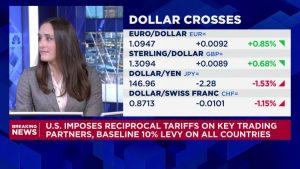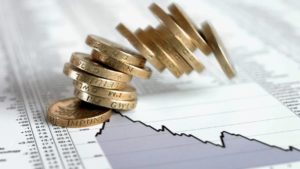The S&P 500 suffered its worst days since 2020 last week, while the FTSE 100 has also been sliding lower. In turbulent times like these, it can be tempting to reach for the sell button. But as billionaire super-investor Warren Buffett once rightly observed: “The stock market is a device for transferring money from the impatient to the patient.”
In other words, massive market volatility is part of the investing cycle. But for those who stay calm and hold their positions — and consider buying high-quality stocks while they’re down — the long-term rewards can be significant.
History teaches us this again and again. For instance, many high-quality stocks that crashed during the 2020 pandemic crash have not only fully recovered, but gone on to produce very strong returns.
Indeed, just buying an index tracker five years ago would have generated inflation-busting gains. The FTSE 100’s total return (including dividends) is above above 60% over this time, while the tech-heavy Nasdaq 100 has soared nearly 140%. That is even after factoring in the recent sharp sell-off.
Certain individual stocks have done even better, and not just obscure hidden gems. Established blue-chips like Alphabet, Lloyds, and Warren Buffett’s Berkshire Hathaway have all more than doubled. Meta Platforms, Rolls-Royce, and Nvidia are up 230%, 670%, and 1,450%, respectively.
Global tariff war threat
Right now, there is extreme fear developing due to the Trump administration’s steep tariffs placed on most US imports. This and the prospect of retaliatory import taxes is causing uncertainty for a lot of globe-trotting companies, both in the UK and America.
Of the many alarming headlines, one stood out to me. That was one from Bloomberg citing Bank of America, which said that an all-out global tariff war could mean an aggregate 32% hit to the S&P 500’s operating income.
Personally, I don’t think things will get that far. Many nations in Asia and elsewhere are likely to proactively offer concessions to mitigate the impact on their economies and maintain favourable US trade relations.
Portfolio repositioning
Having said that, it’s unwise to be blind to the risks. And while Buffett is fond of saying that his ideal holding period is “forever“, that didn’t stop him from selling down stocks over the past few quarters.
Similarly, I have been doing a bit of portfolio repositioning in recent weeks — though admittedly on a far smaller scale than Buffett! I sold shares in Greggs and Diageo (LSE: DGE), two consumer-facing firms where the short and medium-term outlook now appears challenging to me.
For global spirits giant Diageo, any spike in inflation from Trump’s tariffs will be a huge headache. The company has already been seeing weakness in places like Latin America, where inflation-weary drinkers have been trading down from its premium brands.
Tariffs will also likely place a burden on profits, which could even threaten the firm’s tremendous long-term dividend growth record. Revenue is forecast to be broadly flat this financial year (ending June), then grow just 2.7% next year.
Admittedly, Diageo owns world-class brands like Johnnie Walker and Tanqueray. Meanwhile, Guinness has been doing really well.
However, it can be a mistake to hang onto shares of a company just because it has great brands (Unilever springs to mind). So I’m looking to deploy this money elsewhere.
This post was originally published on Motley Fool







